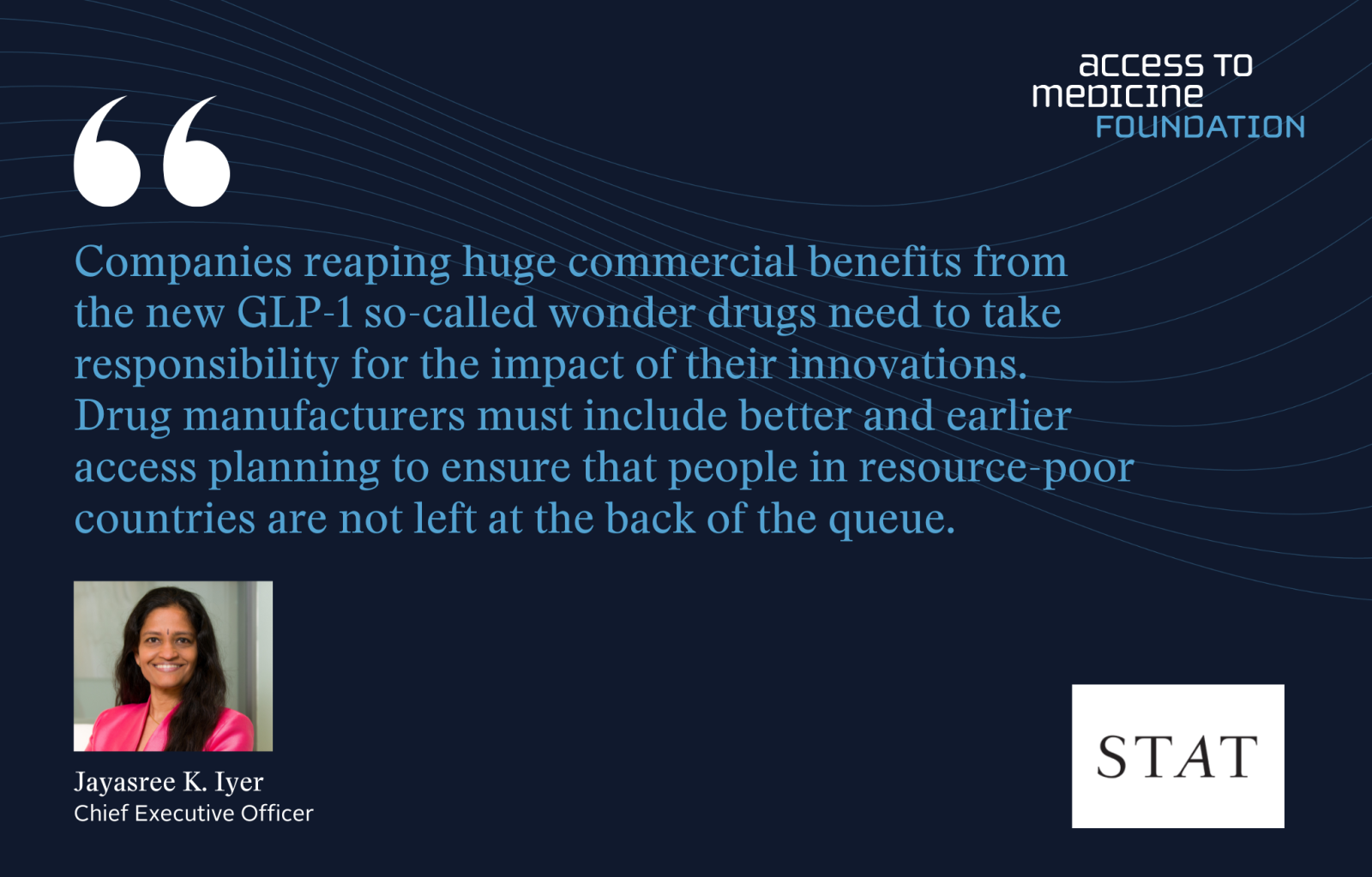Date
07 June 2024
Op-ed: Obesity drugs pose a big challenge for health care equity
Direct links

Obesity rates in LMICs are increasing faster than in wealthier nations for various reasons, including a lack of access to nutritious foods and increasingly sedentary lifestyles.
In her op-ed, Iyer establishes that the obesity crisis being faced by many LMICs does not mean hunger and undernourishment have been solved. Rather, some LMICs are now facing double epidemics of hunger and obesity, which both pose serious long-term consequences for health.
Demand for new GLP-1 drugs for obesity such as Wegovy and Zepbound has grown quickly in high-income countries, due to their important health benefits. However, Jay worries that pharmaceutical companies are not adequately planning for distribution of new weight loss treatments in LMICs.
Iyer writes that while companies must consider their bottom lines, they must also facilitate better and earlier access planning to ensure that people in resource-poor countries are not neglected.
On another note, she adds that high demand and potential profits from obesity drugs could distract R&D-based pharma companies from developing other critical products, such as antibiotics, which are needed in the fight against antimicrobial resistance.


